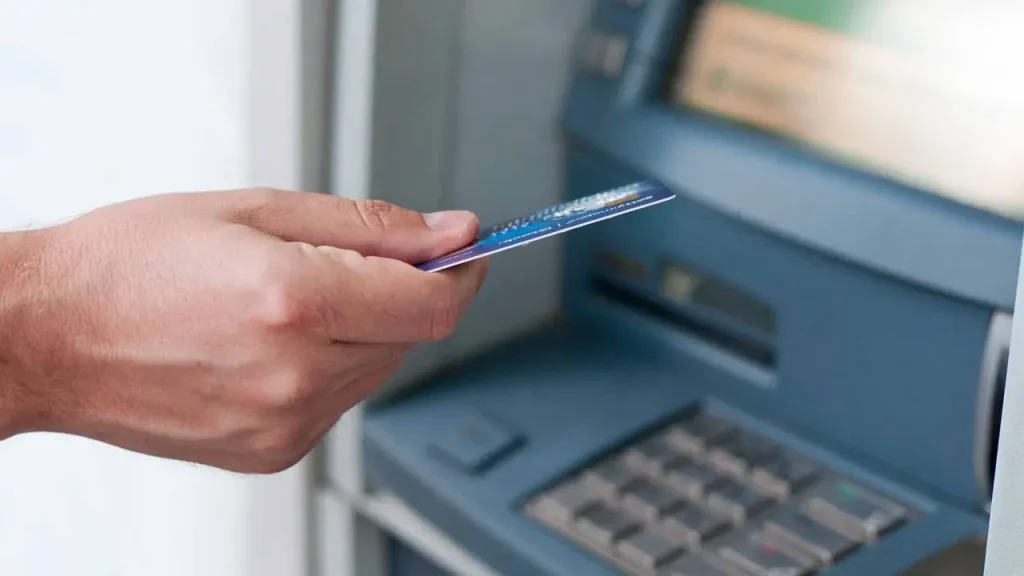
Recognize and Avoid Financial Fraud A Complete Guide
It starts with a text message. A weird one. Something about a package you don’t remember ordering or a bank account you don’t even have. You delete it. An hour later, an email arrives. It looks official, urgent, demanding you click a link to verify your identity.
It feels like a digital minefield out there, and frankly, it’s exhausting. The constant vigilance required has become a part of modern life. Learning to recognize and avoid financial fraud isn’t just a good idea anymore; it’s a critical survival skill. These criminals are sophisticated, they are relentless, and they are counting on you to make one small mistake. But you don’t have to be a victim. It’s about understanding their game and building a defense so strong it becomes second nature.
Understanding the Landscape of Financial Fraud
Before you can fight back, you need to know what you’re up against. The world of financial fraud is broader and deeper than most people realize. It’s not just a handful of hackers in a dark room. It’s a global, multi-billion dollar industry built on deception. To fight back effectively, you have to appreciate the scale and the psychology behind these crimes.
What is Financial Fraud?
At its core, financial fraud is the act of illegally or unethically obtaining money or property through deception. Simple, right? But the methods are anything but. This can range from a simple stolen credit card number to an incredibly complex investment scheme.
Think about the classic definition of phishing scam financial experts use: it’s bait. An email or text is dangled, hoping you’ll bite and give up personal information. The ultimate goal is always the same—to separate you from your money. The key is understanding that knowledge is the first step toward protecting yourself.
Why Fraud is on the Rise
Technology is a double-edged sword. It’s made our lives incredibly convenient, but it’s also opened up a thousand new doors for criminals. They can operate from anywhere in the world, hide behind layers of digital anonymity, and target millions of people with a single click. It’s a business. A very dirty one. They have scripts, they have technology, and they have no conscience. The sheer volume of attempts means they only need a tiny percentage of people to fall for it to be profitable.
The Human Element: Why We Fall for Scams
So, why do people fall for financial scams? It’s a question many victims ask themselves, often wrapped in shame. But it has nothing to do with intelligence. Scammers are masters of psychological manipulation. They exploit fundamental human emotions: fear, greed, loneliness, and even our desire to be helpful.
They create a sense of urgency to bypass our logical thinking, forcing us into a state of panic where we are more likely to make mistakes. We’re wired to trust, and they use that against us. This psychological aspect is a core challenge in preventing these scams.
Common Types of Financial Fraud to Watch For
Let’s be real, the variety is staggering. If you’re wondering what are common financial fraud schemes, the list is constantly evolving. But most fall into a few major categories. Knowing these patterns is essential for your financial safety.
Online and Digital Scams
This is where the bulk of modern fraud happens. The internet provides the perfect playground for deception, from fake websites to malicious software.
Phishing and Smishing Attacks Explained
Phishing (email) and Smishing (SMS/text) are the bread and butter of digital fraud. You get a message that appears to be from a legitimate source—your bank, a delivery service, a social media platform—urging you to click a link and enter your credentials. That link leads to a fake website, and the moment you type in your username and password, they have it.
Tech Support Scams and How They Work
A sudden, alarming pop-up on your computer screen screams that you have a virus and must call a support number immediately. You call, and a “technician” convinces you to grant them remote access to your device. From there, they can install malware, steal your files, or lock you out of your own computer until you pay a ransom. It’s pure fear-mongering.
Investment Fraud Online Tactics
The promise of quick, guaranteed high returns is a powerful lure. Online investment scams often involve cryptocurrency, forex, or fake stock opportunities promoted on social media. One of the biggest signs of investment fraud to look for is the pressure to “get in now” before the opportunity is gone. They create a frenzy to stop you from doing your due diligence.
Impersonation Scams
This category is all about pretending to be someone they’re not, leveraging the authority or trust associated with that identity.
Government Impersonation Fraud
A fraudster calls claiming to be from the tax agency, law enforcement, or another government body. They’ll claim you owe back taxes or have a warrant for your arrest, and that you must pay immediately via wire transfer or gift cards to avoid dire consequences. This is a classic tactic, and a key step in preventing tax related financial fraud is knowing that no government agency will ever demand payment this way.
Grandparent Scams and Family Impersonation
This one is particularly cruel. My own grandmother received a call from a panicked young man claiming to be her grandson, arrested in another country and needing bail money. Her heart dropped. She was seconds away from sending thousands of dollars before a gut feeling made her hang up and call my father. Her grandson was, of course, safe at home. This highlights how to protect elderly from financial scams; it often starts with a conversation about these tactics before they ever happen.
Relationship and Romance Scams
Scammers create fake profiles on dating sites and social media, investing weeks or even months building an emotional connection. Once trust is established, the requests for money begin—for a medical emergency, a plane ticket to visit, or a business problem. They milk the victim for as long as they can before disappearing.
Credit and Debit Card Fraud Prevention
So, how does credit card fraud work? It can be as simple as a thief stealing your physical card or as complex as “skimming,” where a device is placed on an ATM or gas pump to copy your card details and PIN. It also happens through data breaches of online retailers. Prevention involves regularly checking your statements and being mindful of where and how you use your cards.
Red Flags: How to Spot a Financial Scam
Developing a sixth sense for scams is your best defense. The ability to spot a scam often comes down to spotting the warning signs. Here’s how to identify a financial scam before it’s too late.
Urgent or High-Pressure Tactics Used by Scammers
Any message that screams “ACT NOW!” or “IMMEDIATE ACTION REQUIRED” should be treated with extreme suspicion. Fraudsters create a false sense of urgency to prevent you from thinking clearly. A legitimate organization will give you time to review and respond.
Requests for Unusual Payment Methods
If someone demands payment in gift cards, cryptocurrency, or via a wire transfer service, it’s a massive red flag. These methods are difficult to trace and nearly impossible to reverse, which is exactly why criminals prefer them. Full stop.
Unsolicited Offers That Seem Too Good to Be True
You won a lottery you never entered. A distant relative you’ve never heard of left you a fortune. You’re pre-approved for an incredible investment with guaranteed returns. If it sounds too good to be true, it absolutely, 100% is.
Emotional Manipulation and Fear Tactics
Scams are designed to provoke a strong emotional response. They might try to make you feel scared for your safety, guilty for not helping a “family member,” or excited about a “once-in-a-lifetime” opportunity. When your emotions are high, your critical thinking is low. Recognizing this is a huge part of developing your anti-fraud instincts.
Poor Grammar and Spelling in Communications
While some scammers are getting more polished, many fraudulent emails and texts are still riddled with spelling mistakes, odd phrasing, and grammatical errors. A professional organization proofreads its communications. Scammers often don’t.
Proactive Steps to Safeguard Your Finances
You can’t just play defense; you need a proactive strategy. Implementing best practices to prevent financial fraud is about building layers of security around your life.
Strengthening Your Digital Security
Your digital life is your financial life. Protecting it is non-negotiable.
Strong Passwords and Multi-Factor Authentication
Use long, complex, and unique passwords for every account. And please, enable multi-factor authentication (MFA) everywhere it’s offered. It’s one of the single most effective barriers you can put up against unauthorized access. This is a fundamental way to prevent unauthorized account access.
Regular Software Updates for Protection
Those annoying update notifications on your phone and computer? They’re not just for new features. They often contain critical security patches that protect you from the latest viruses and malware. Don’t ignore them.
Using Secure Networks to Avoid Fraud
Be very careful when using public Wi-Fi. It’s often unsecured, making it easy for criminals on the same network to snoop on your activity. Avoid logging into your bank or making financial transactions unless you are on a trusted, secure network.
Practicing Smart Communication Habits
A little bit of skepticism can save you a world of trouble.
Verifying Identities Before Sharing Information
If you get an unsolicited call or email from your bank or another institution, don’t provide any information. Hang up or delete the email. Then, contact the institution yourself using a phone number or website you know to be legitimate.
Being Wary of Unsolicited Contact
Your default setting for any unsolicited contact should be suspicion. A healthy dose of “I don’t believe you” is essential for staying safe online. Don’t click on links or download attachments you weren’t expecting.
Monitoring Your Financial Accounts Regularly
Don’t wait for your monthly statement. Log into your bank and credit card accounts weekly, if not more often. Look for any transactions you don’t recognize, no matter how small. Scammers sometimes test an account with a tiny charge before making a large one.
Educating Yourself Continuously on New Scams
The landscape is always changing. Staying informed about the latest scams is a crucial part of your defense. Staying ahead of scammers requires ongoing learning, as criminals are always developing new angles of attack.
What to Do If You Suspect or Are a Victim of Financial Fraud
Even with the best precautions, it can happen. If it does, speed is critical.
Immediate Actions to Take When Scammed
First, don’t panic. Second, act fast. If you’re asking what to do if bank account hacked, the answer is to call your bank’s fraud department immediately. They can freeze your account and stop further fraudulent transactions. Change your passwords for that account and any others that use the same one.
Reporting Fraud to Authorities and Institutions
There are many ways to report online financial fraud. Report the incident to the appropriate law enforcement and consumer protection agencies. Many people look to Federal Trade Commission financial fraud resources for guidance. Reporting helps authorities track patterns and can prevent others from becoming victims.
Protecting Your Identity After a Breach
The question of what happens after financial identity theft can be scary. You should place a fraud alert or a credit freeze on your credit reports with the major credit bureaus. This makes it harder for someone to open new accounts in your name. You may also want to research identity theft protection services for fraud monitoring.
Seeking Emotional and Financial Support
Being a victim of fraud is traumatic. There can be feelings of shame, anger, and violation. It’s important to know where to get help for financial fraud, and that includes emotional support from friends, family, or professional counselors. You are not to blame.
Building a Resilient Defense Against Financial Scams
Ultimately, the best defense is a resilient and skeptical mindset. To consistently protect yourself from scams, you must make vigilance a habit.
Cultivating a Skeptical Mindset Against Fraud
Pause before you click. Question before you share. Verify before you send. This deliberate, skeptical approach is your most powerful tool. It’s not about being negative; it’s about being smart and protecting yourself and your family.
The Role of Financial Institutions in Prevention
Banks and credit card companies invest heavily in fraud prevention technology. They use algorithms to detect unusual activity and offer tools like account alerts and card-freezing options. A good financial fraud protection services comparison will show you what your bank offers. Use these tools. They are there to help you.
Community and Family Vigilance Against Scams
Talk about it. Share this article. Discuss the scams you’ve seen with your friends and family, especially older relatives who are often targeted. The more we normalize talking about these attempts, the more we collectively learn how to recognize and avoid financial fraud and the less power fraudsters have over us.







